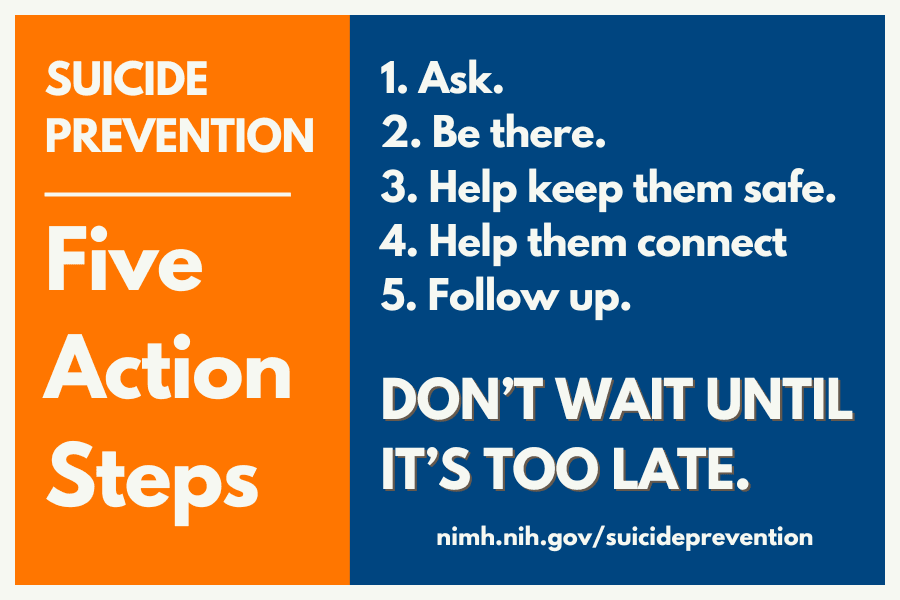
In North Carolina, Suicide is the second and third leading cause of death among children between ten and fourteen and fifteen to seventeen-year-olds, respectively. In North Carolina, various mental health organizations recommend a list of things parents should do to help steer their children away from contemplating suicide.
These organizations recommend things parents can do to help their children avoid suicide including paying attention or tuning into behavior that is out of the ordinary; actively listening; there are more risks than when parents were children; avoiding blowing off what’s happening as though it is simply “teenage drama”; try to fit in the child’s shoes and be understanding; solicit support and get emergency help if needed; remove weapons and any substance that could be lethal; engage therapy and be hopeful; encourage the child to connect with family and friends; ensure they are getting enough sleep and exercising; make self-care a priority; and remember to allow enough time for the prevention of suicide to work.
Dr. Edward Salzberg, a pediatrician at Roswell Pediatrics Center in Georgia believes that there are not enough solutions to preventing suicide because mental health is still too low on the list of areas of importance. The nation places a higher emphasis on one’s physical health rather than one's mental health. Dr. Salzberg believes that mental health should be elevated to the same importance as physical health.
As organized pediatric researchers work to provide new resources and interventions to combat suicide risks, they've found that these resources and interventions are either not available or not accessible for families across all societal spectrums. Dr. Moutier, a member of Project ECHO (Extension for Community Healthcare Outcomes), recognizes that providers are “missing opportunities to identify youth who are becoming at risk for suicide.” ECHO and other pediatric researchers who emphasize suicide prevention methods face the challenge of identifying risk and suicide rates that help formulate better suicide prevention plans because of the existing disparities in health equity. For example, there is limited suicide prevention and risk research on youth other than white children. As a result, studies about suicidal ideations, actions, and risk factors among non-white children and youth do not exist. An efficient plan to address suicide prevention in Black, Indigenous, Asian American, Latino, and other people of color can only be developed with adequate research among these communities. Parents and caregivers of children from BIPOC communities are ill-equipped to look for the same patterns of behavior to build risk screening that white children and youth demonstrate because each culture creates distinct behavior among its families and community.
Operation Xcel partners with a few community organizations that provide mental health first aid and suicide prevention training to its staff and the families it serves. Its Social Emotional Learning teachers offer practical, helpful information and strategies for students to check in with themselves about what is on their minds. When children or youth write and talk about their feelings instead of ignoring them, they develop emotional competence, resilience, and coping skills and have better mental health and well-being. On the other hand, research and practice prove that when parents suppress talk about the child’s negative emotions, the child may have difficulty coping with bad things when they happen, are less emotionally expressive, and will probably have social-emotional problems later. If you have a student attending any of Operation Xcel programs whose emotional health you are concerned about, please get in touch with the site director for support and assistance.
Parents: You are encouraged to remain present and accessible listening to and allowing your child to express their feelings to you openly. Please pay attention to what has your child’s attention including their social media posts. If they sound deflated and devoid of hope or joy, it may be time to check for other warning signs and ask for help. It is okay not to be OK, but it is not OK to ignore one who is not OK—especially if that person is your child.
Call the National Suicide and Crisis Line at 988 if you recognize warning signs or need support.

